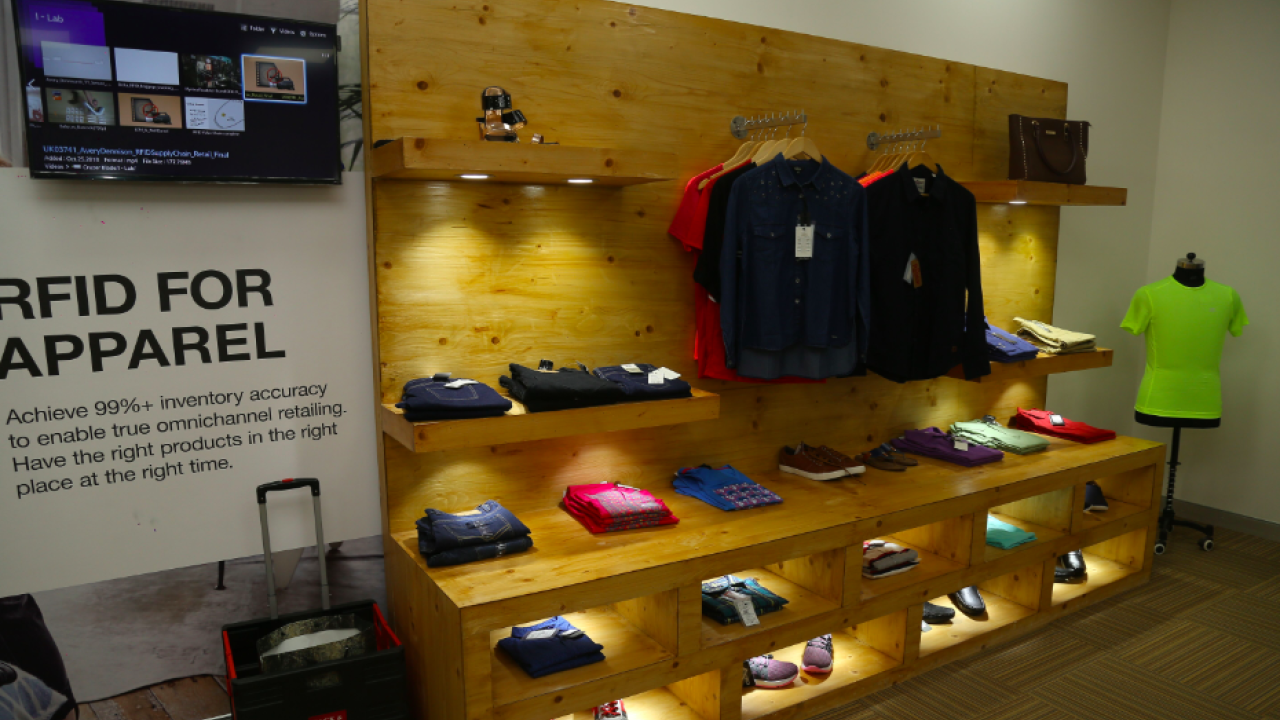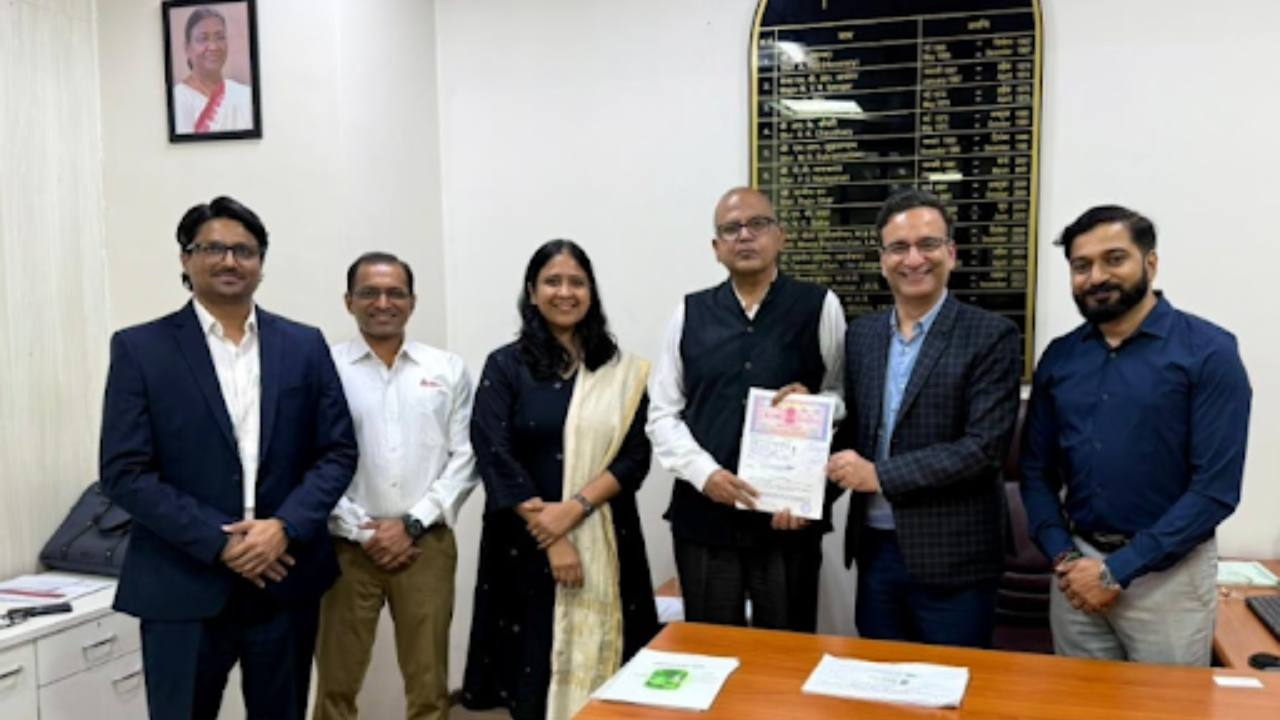First Asian I.Lab opened in India

The new Avery Dennison I.Lab, located in Pune, India, is an interactive facility that provides customers and partners with hands-on experiences, live demonstrations and technical support, to help converters and partners explore the opportunities surrounding intelligent labels and RFID adoption.
‘We are thrilled to have the third global I.Lab – and first in Asia – in India,’ said Pankaj Bhardwaj, senior director and general manager, South Asia, Label & Graphic Materials, Avery Dennison. ‘Through I.Lab, we are well-positioned to advance the creation, delivery and adoption of intelligent label solutions for businesses in various industries. I.Lab is an important milestone because labels will get increasingly interactive and smarter and this technology will play a very critical role.’
The I.Lab is integrated within the Avery Dennison Innovation and Knowledge Centre (ADIKC) that houses the company’s R&D capabilities for the region. End user and converter training for flexo printing and graphics printing with the collaboration of 17 supplier partners are also conducted at there.
Modeled on the first concept lab in Oegstgeest, Netherlands, this new I.Lab demonstrates how Avery Dennison’s intelligent labeling technology can bring any item to digital life, catering to multiple industries including aviation, apparel, beauty and food. By connecting the physical and digital world through unique item-level digital identities, businesses can benefit from improved inventory management and increased efficiencies throughout the supply chain.
Anil Sharma, vice president and general manager, South Asia Pacific and Sub Saharan Africa, Label & Graphic Materials, Avery Dennison, said: ‘Tomorrow’s business requires smarter solutions that bring positive changes to the way we live, work and play. Therefore, RFID is an important area for us. Over the last 25 years, we have done a lot of work in this space. Avery Dennison is now the world’s largest producers of ultra-high frequency (UHF) RFID tags and owns more than 1,000 patents in this field.
‘We realized that we had to create the vision, to make a label intelligent and drive it forward as the future of the industry. RFID is the major technology that makes digital and physical connect possible. In the next 10 years, we expect to see a quantum shift in the way things will evolve in every market across the world.’
The shift, however, will be multi-generational and will happen in different phases, Sharma predicted. ‘The first and current phase is to simplify supply chain by leveraging RFID and enabling a more efficient and accurate inventory management. The second phase will allow omni-channel trade by creating brand security in the value chain and smoother transactions. Lastly, RFID will give brand owners one-to-one connect with consumers. More devices will be able to read RFID tags in people’s houses and enable a company to have a hyper personalized message for each consumer.’
Bhardwaj added: ‘India is at the first stage of technology adoption, so we will hand-hold converters and develop markets along with them. It is not necessarily required for printers to invest upfront to supply smart labels. They can build the business and then choose to invest.’
Smart label trends
Detailing smart labeling trends worldwide, Jasper Zonnenberg, director global converter leverage, channel and aviation, Avery Dennison, said: ‘Originally, UHF or RFID tags were dominant in apparel. However, with the surge in volume, the cost of RFID tags has come down, enabling more segments such as beauty, food, aviation, medical and automotive to use this technology. In retail, RFID tags facilitate inventory management for better sales and reduced error. In food, it can be used for traceability, security, food safety, and reducing food waste.
‘The International Air Transport Association (IATA) will soon mandate the use of RFID baggage tags to reduce the incidences of lost luggage. It is expected to bring down the cost of lost luggage by 10 percent, thereby, saving airlines globally a whopping $270 million USD.’
While sharing details of RFID product portfolio and applications, Evelyn Ong, business development manager RFID, ASEAN & ANZ, Label & graphic Materials, Avery Dennison, cautioned the audience: ‘Converters need to understand for what application RFID is required. RFID antennas are uniquely designed for different materials. Therefore, for an RFID label to have good readability and optimized performance, it is critical to know what material the label be applied on.’
To further grow the market, Avery Dennison has made strategic technology investments and partnered with a semi-conductor company, Wiliot, for battery-free bluetooth sticker sensor technology, and with PragmatIC for printed RFID chips. ‘These developments, when ready, will considerably reduce the cost of smart labels. We are also working on RFID block-chain possibilities for traceability options for the future,’ assured Sharma.
The company also launched on-metal UHF RFID tags that have been optimized for performance when applied to objects containing metal, liquids and foil. Avery Dennison is the first company in the world that developed RFID tags that do not spark fire in a microwave oven. Commonly used for managing inventory of ready prepared meals and smart fridges, these tags, as demonstrated at the I.Lab, can withstand five minutes of radiation in a microwave.
To gear itself for the expected surge in demand for smart labels, Avery Dennison will soon open sites in Europe and China to manufacture RFID inlays.
Stay up to date
Subscribe to the free Label News newsletter and receive the latest content every week. We'll never share your email address.

